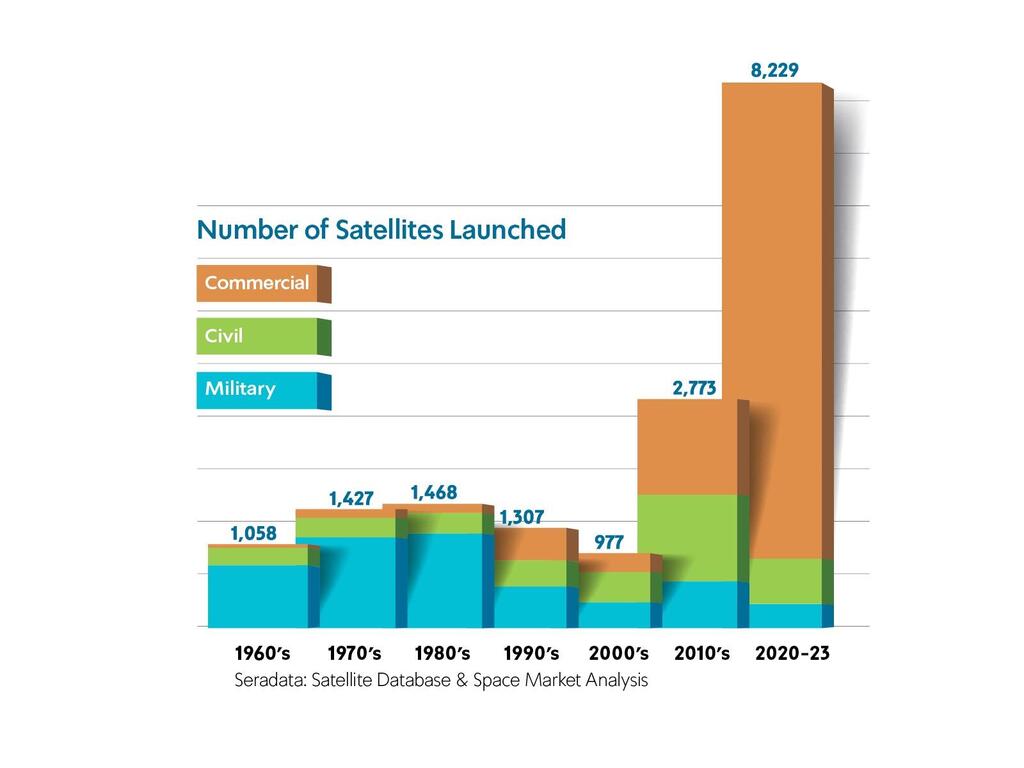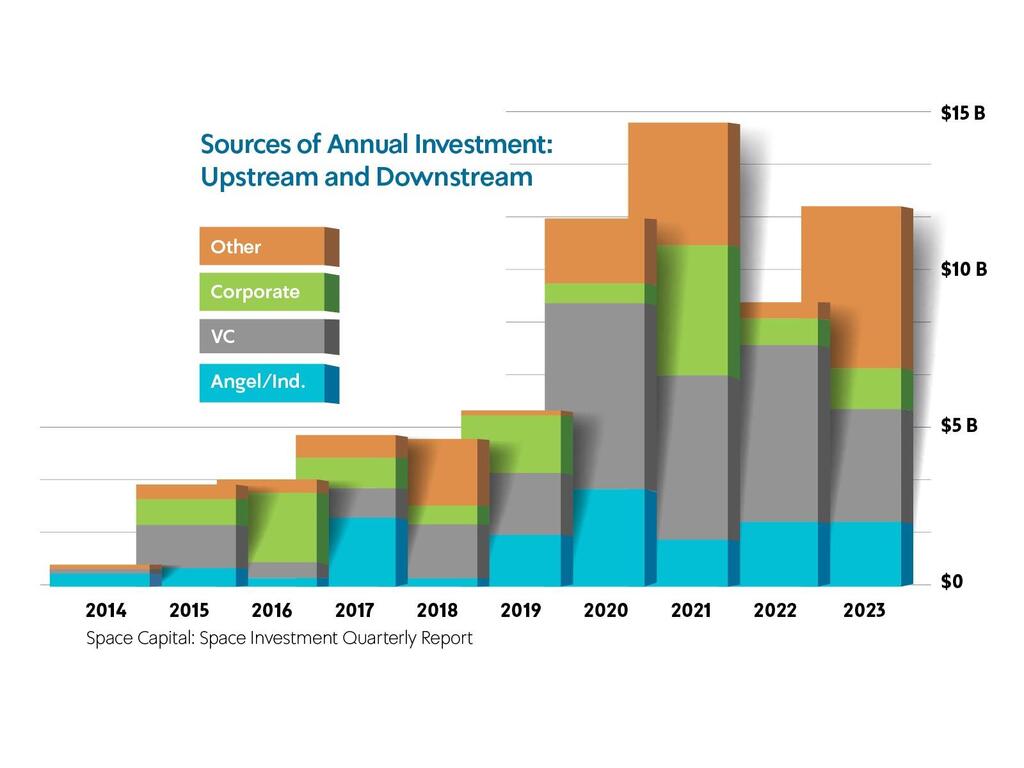
Opinion
Harnessing space technologies for a sustainable future
Israel stands uniquely positioned to advance in the field of space technologies for climate applications. With a history of innovation in aerospace and a thriving high-tech ecosystem rich in AI, machine learning, and data analysis expertise, Israel can lead significant advancements in this area
Most of the technologies required for humanity to achieve net-zero emissions by 2050 and keep global temperature increases within 1.5 degrees Celsius are either nonexistent or not yet ready for widespread application. Our latest report at PLANETech, “Climate from Above: Leveraging Space Technologies” provides a comprehensive overview of how remote Earth observations and especially satellites can be pivotal in combating the adverse effects of global warming. The space industry, traditionally dominated by governmental projects, is now a burgeoning field of private innovation, crucial for achieving net-zero emissions. Our objective at PLANETech is to highlight the “lowest hanging fruits” and opportunities within Climate tech and promote Israel as a global hub for the industry
Climate tech becomes a leading tech sector
According to a BCG report, in 2023 10 cents out of every venture capital dollar were invested in climate change. It keeps the trend of the climate tech sector as getting a bigger share of the venture capital investments. In Israel, this share was even more significant- 14 cents out of every dollar. 2024 seems even more promising to the sector, Pitchbook reports that a sum of $8.1 billion was invested in Climate tech at the first quarter of the year demonstrating a growth of more than 37% compared to the last quarter of 2023. This trend opens the door for more startups to come up with disruptive solutions,
A new frontier in climate action
The core premise of our report is the transformative potential of space technologies in climate tech. As the world faces increasing instances of extreme weather, rising sea levels, and biodiversity losses, the need for an actionable, data-driven approach to climate change has never been more critical. Remote sensing technologies, offered by satellites orbiting hundreds of miles above Earth, provide invaluable insights into these pressing issues. They allow us to monitor atmospheric conditions, forest fires, droughts, and more, with unprecedented accuracy and timeliness.
Satellite data: A game changer for climate-related applications
In our report, we’ve identified several verticals where satellite information can be easily transformed into business decisions that can significantly increase effectiveness of mitigation and adaptation measures.
- Greenhouse Gas (GHG) Monitoring: Satellites equipped with advanced sensors can detect and monitor GHGs such as methane and carbon dioxide across the globe. This capability is vital for pinpointing emission hotspots, verifying the effectiveness of emission reduction strategies, and providing data essential for policy and decision-making.
- Precision Agriculture: By integrating satellite imagery with farming practices, these technologies enable precision agriculture, which significantly reduces inputs, enhancing yield and sustainability. This technology not only helps in monitoring crop health and irrigation but also plays a crucial role in soil carbon sequestration, thus contributing to the mitigation of climate change.
- Biodiversity Monitoring: Satellite technologies offer a unique vantage point to observe and assess ecosystem health across diverse habitats. From tracking animal migrations to monitoring forest cover and vegetation, satellites provide essential data that supports conservation efforts and helps address biodiversity loss.
- Climate Data for Modeling and Analysis: Satellites contribute significantly to climate modeling by providing data on essential climate variables like precipitation, sea surface temperature, and atmospheric vapor levels. This information is crucial for understanding climate dynamics and assisting in the development and refinement of climate models.
Value chain of satellite information
The journey of satellite data from space to decision-makers’ desks involves several key stages:
- Data Collection: Satellites equipped with various sensors collect vast amounts of environmental data.
- Data Transmission: The collected data is transmitted to ground stations where it is processed and analyzed.
- Data Analysis: Companies specializing in data analytics apply advanced algorithms, including AI and machine learning, to convert raw data into actionable insights.
- Application: This processed information is then made available to businesses, policymakers, and scientists, who use it to make informed decisions on a wide range of climate-related issues.
Israel’s unique opportunity in space technologies for climate applications
Israel stands uniquely positioned to advance in the field of space technologies for climate applications. With a history of innovation in aerospace and a thriving high-tech ecosystem rich in AI, machine learning, and data analysis expertise, Israel can lead significant advancements in this area. Moreover, the collaborative nature of Israeli research institutions and startups, supported by government-backed R&D, creates an environment ripe for the development of dual-use technologies that serve both defense and climate tech sectors.
The convergence of these factors, coupled with Israel’s culture of problem-solving and innovation, suggests a bright future in the global climate response. By leveraging its technological capabilities and innovative spirit, Israel can not only address its own climate challenges but also contribute to climate resilience.
A call for action: The time to harness Israel’s expertise in space technologies is now
As we advance, it is clear that space technologies will continue to play a crucial role in our understanding and management of climate change. PLANETech remains committed to leading the charge in integrating these technologies into our fight against climate change, demonstrating that when it comes to saving our planet, indeed, the sky is not the limit. We invite all stakeholders to join us in this journey to create a sustainable future for generations to come.
This vision, detailed in our report, is not just an academic pursuit but a call to action — an opportunity to transform insights into impactful, tangible changes that address the multifaceted challenges of climate change effectively.
Noam Sonennberg is Director of PLANETech and Yaroslav Efimov, PhD, is Head of Climate Programs at PLANETech.

















